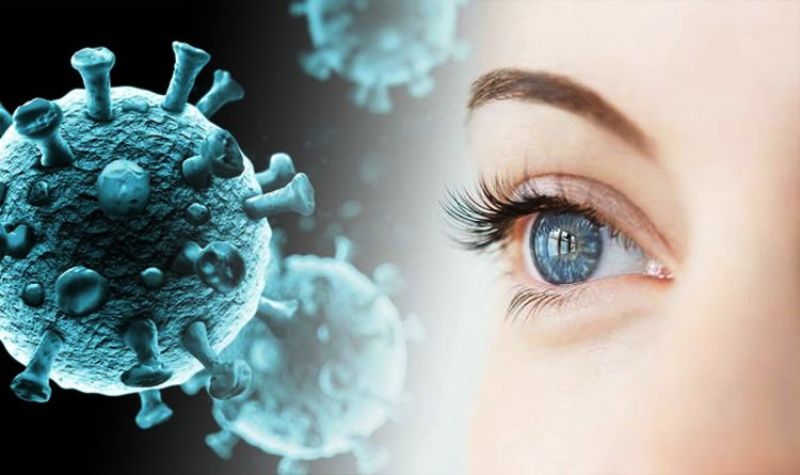Physical Address
304 North Cardinal St.
Dorchester Center, MA 02124
Physical Address
304 North Cardinal St.
Dorchester Center, MA 02124

The eyes are a possible route of contagion for the coronavirus, and can also suffer a consequence related to it: viral conjunctivitis. Specifically, it has been observed that 1% of patients with symptoms of the new virus also have this eye problem.
Although the percentage is low, the data is very relevant, since, in some cases, conjunctivitis has appeared before the rest of the symptoms. In this sense, Dr. Garcia Gómez, head of Ophthalmology at the Hospital Quirónsalud Vitoria, points out that “hence the current importance of controlling that patients with conjunctivitis do not present other types of symptoms, such as fever or dry cough, to rule out that is related to the coronavirus and also to be able to anticipate. ”
It is follicular conjunctivitis similar to that caused by other viruses and, to treat it, a different therapy is not necessary than those applied in this type of conjunctivitis. Our ophthalmologist emphasizes that “its severity lies in the fact that a percentage of these people can progress to pneumonia or respiratory distress .”
In addition, unlike allergic conjunctivitis, it can be accompanied by fever or dry cough, or other symptoms related to Covid-19, to which you must be very alert. In this sense, Dr. Nabil Ragaei Kamel, head of Ophthalmology at Hospital Quirónsalud Marbella, sends us a message of calm, since “we are in a period of the year, spring, very prone to experiencing minor eye discomfort, itching, and conjunctivitis mainly because of allergic reactions, to varying degrees. ”
For many people, allergic conjunctivitis is a nightmare for their eyes in the spring. To alleviate discomfort, it is recommended to use cold saline and artificial tears. Of course, in case of presenting, in addition, fever or dry cough, it is important to contact the numbers enabled to rule out that it is due to a contagion of coronavirus.
The risk of coronavirus infection occurs when the mouth, eyes, or nose comes into contact with infected droplets that are expelled by speaking or coughing. Therefore, hand hygiene and not touching the face are important preventive measures. So what happens to contact lenses, the use of which involves precisely touching the face and eyes?
At the moment, there is no evidence that contact lenses should be avoided, but, taking into account the routes of contagion of the coronavirus and the current health alert situation, it is preferable to replace them with glasses. In this regard, Dr. García clarifies that “it is known that the SARS-COV-2 virus can be isolated in the tear and the conjunctiva, as well as transmitted by these. For this reason, it would be advisable not to wear contact lenses .”
The risk of contagion is less if we apply hygiene measures when we remove or put on glasses or contact lenses, since, after all, both are in frequent contact with the hands and also with the eyes.
Dr. Rastogi explains that “the nasal, buccal and ocular mucosa are the main ways of contagion from the virus, and in the latter case, it is especially relevant to clean up those elements that we use to improve our vision.” Therefore, it is vital to disinfect with alcohol the glasses that we use on the street and wash our hands, before and after the use of contact lenses.
Likewise, we must avoid touching our faces and, above all, our eyes. Our ophthalmologist points out that “in case of doing it by reflex, the risk will be less if we have maintained adequate hygiene in the hands, washing them regularly with soap and water or with a hydroalcoholic solution.”
Take care of your eyesight with these tips:
Electronics devices. Avoid using them all day, even if it’s difficult in current circumstances. In the opinion of our ophthalmologist, ” exposure to the screens of mobiles, tablets, computers or televisions must be moderated … since they cause reduced flicker and generate eye fatigue, itching, and dry eyes .”
Drink water and eat fruits and vegetables every day. In this way, you get good ocular hydration, which, in turn, maintains the necessary irrigation so that the mucous membrane is moist.